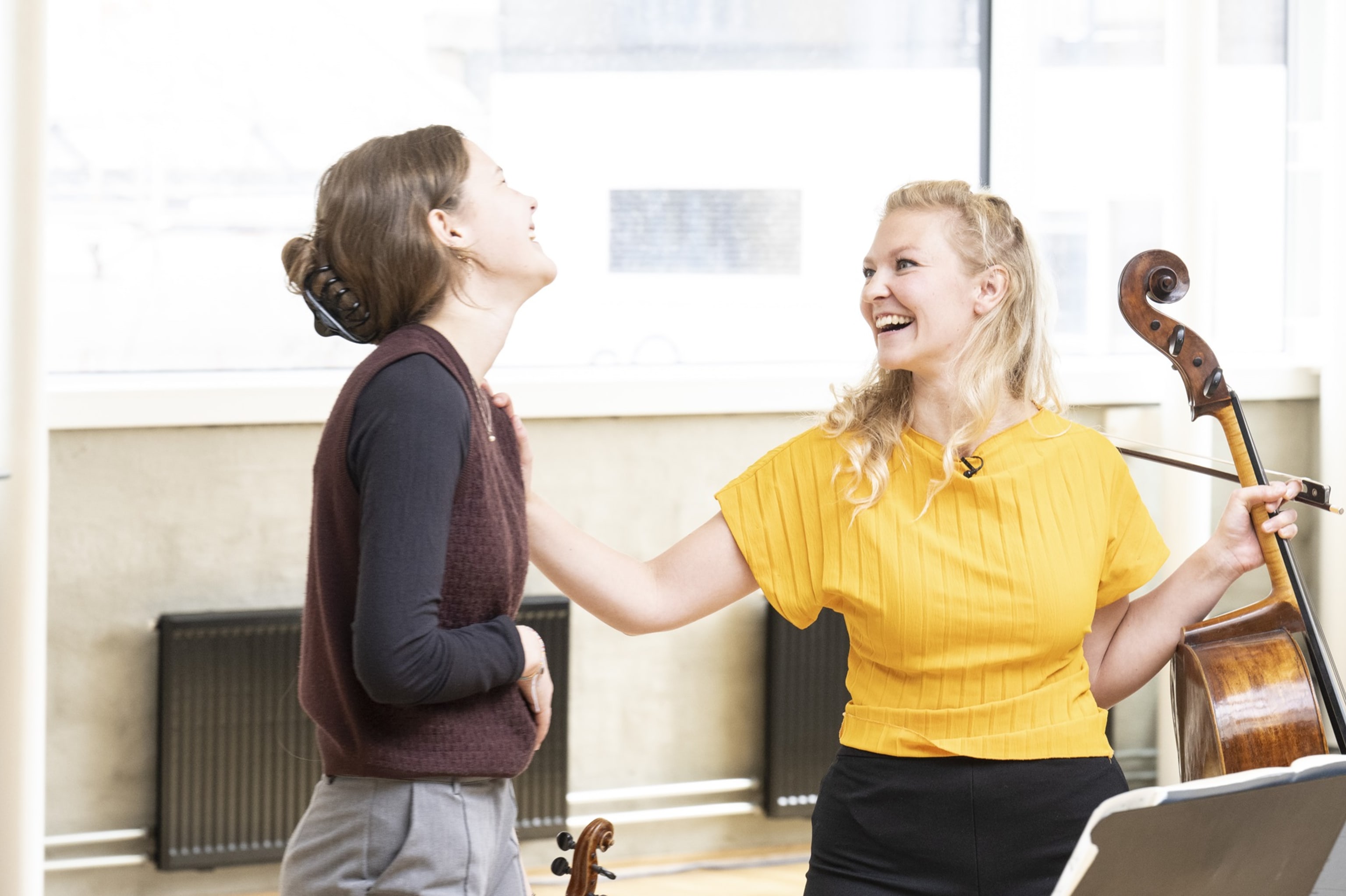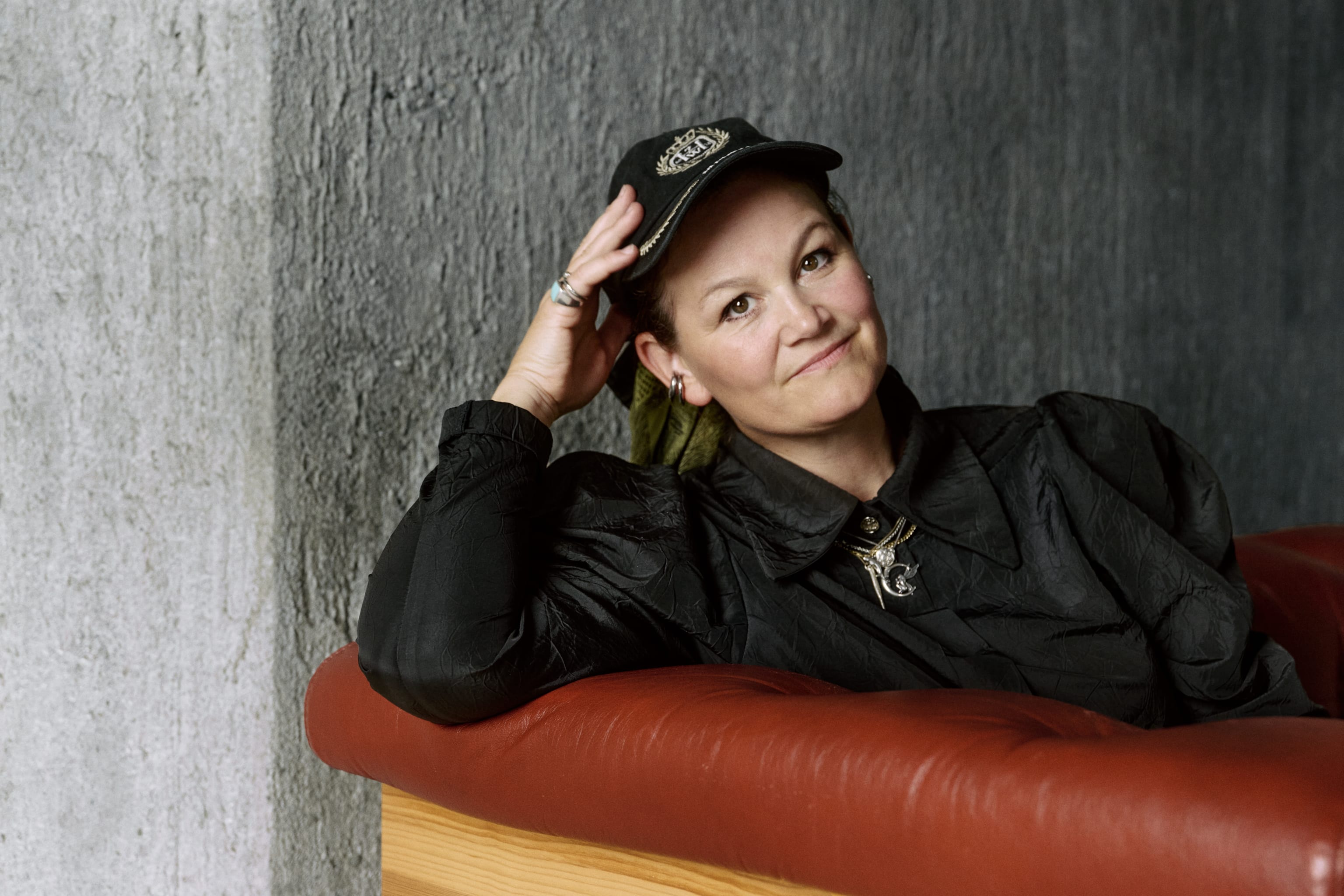
Lene Berg is the 2022 Festival Artist
- Home
- Festival
- 2021
- Articles
- Lene Berg Is The 2022 Festival Artist
November 15, 2021
Film director and visual artist Lene Berg is Bergen Kunsthall's Festival Artist for 2022.
Berg studied film at Dramatiske Institutet in Stockholm, and has directed four feature-length films in addition to a large number of video works and short films. In her practice she often uses a combination of film and video along with text and books, collage and photography.
For the Festival Exhibition at Bergen Kunsthall, Berg is planning an extensive new project which will unfold through the exhibition spaces of the Kunsthall in a series of narrative chapters. The exhibition constitutes the first part of a major work with the title From Father, in which Berg takes her starting point in the heritage of her father Arnljot Berg, who took his own life when she was a teenager.
Arnljot Berg was a film director and author. With the festival exhibition Berg will transform him into her muse and use his life and work as raw material to create encounters between a living and a dead artist, between a father and a daughter, between a woman and a man, and between the Norway of today and the country in which Arnljot Berg lived and worked – a Norway that no longer exists.
Over the past 20 years Berg has developed a working method that combines extensive research with formal experimentation, drawing on such different material such as a CIA conspiracy, illegal surveillance, sex work, or Picasso’s portrait of Stalin.
With her latest film, False Belief from 2019, Berg engaged for the first time with a personal history in order to elucidate a wider complex of issues. False Belief has been described as an alternative ‘true crime’ story, and is about Berg’s partner’s Kafkaesque journey through the American legal system. From Father continues Berg's work with autobiographical material and her own memories, such as her childhood experiences of the time her father spent in prison in Paris in the mid-seventies.
In her works Berg often takes up themes and narratives that have been forgotten or reduced to footnotes in history. Raising such overlooked, apparently insignificant events in a kind of alternative historiography unfolds a broader picture of society and power structures. The works are complex with multiple meanings, often with several thematic layers or different approaches to the same story. The truth of the story that is told is not always the most important thing. It is rather about offering different perspectives on a complex and composite state of affairs.
About Lene Berg
Lene Berg (Oslo, 1965) trained as a film director at the Academy of Dramatic Arts in Stockholm and has directed three feature-length films and a number of shorter films, many of them in so-called hybrid genres. Berg also works in other media, first and foremost photography, collage and text, and has produced works for museums and galleries, as well as cinema, books and works for public space. She has held a number of exhibitions both in Norway and abroad, and participated in several international gatherings, including Manifesta (2010) and the Sydney Biennale (2008). In 2000 she won the Elephant Prize at the art biennale Momentum for the film “33 minutes”. Her film “Dirty Young Loose” was produced for the Norwegian pavilion at the Venice Biennale in 2013. The film “Kopfkino” (2013) was nominated for the Amanda and best Nordic documentary at CPH:DOX. Berg’s last production, the autobiographical film ”False Belief”, was premiered at the Berlin International Film Festival in 2019 and nominated for an Amnesty and a Teddy Award. The same year Lene Berg’s artistic production was in focus during the European Film Festival in Seville. in 2021 she was a co-funder of the film agency Jack along with seven colleagues in the fields of film and art.
About the Festival Exhibition
The Festival Exhibition is Bergen Kunsthall's flagship exhibition, established in 1953. The exhibition is considered the most important solo presentation for a Norwegian artist in their home country.
Festival artists in the recent years include Bjarne Melgaard (2003), AK Dolven (2004), Elmgreen & Dragset (2005), Børre Sæthre (2007), Marianne Heier (2012), Gardar Eide Einarsson (2013), Ane Hjort Guttu (2015), Fredrik Vaerslev (2016), Mari Slaattelid (2019), Joar Nango (2020) and this year's artist Elisabeth Haarr (2021).











